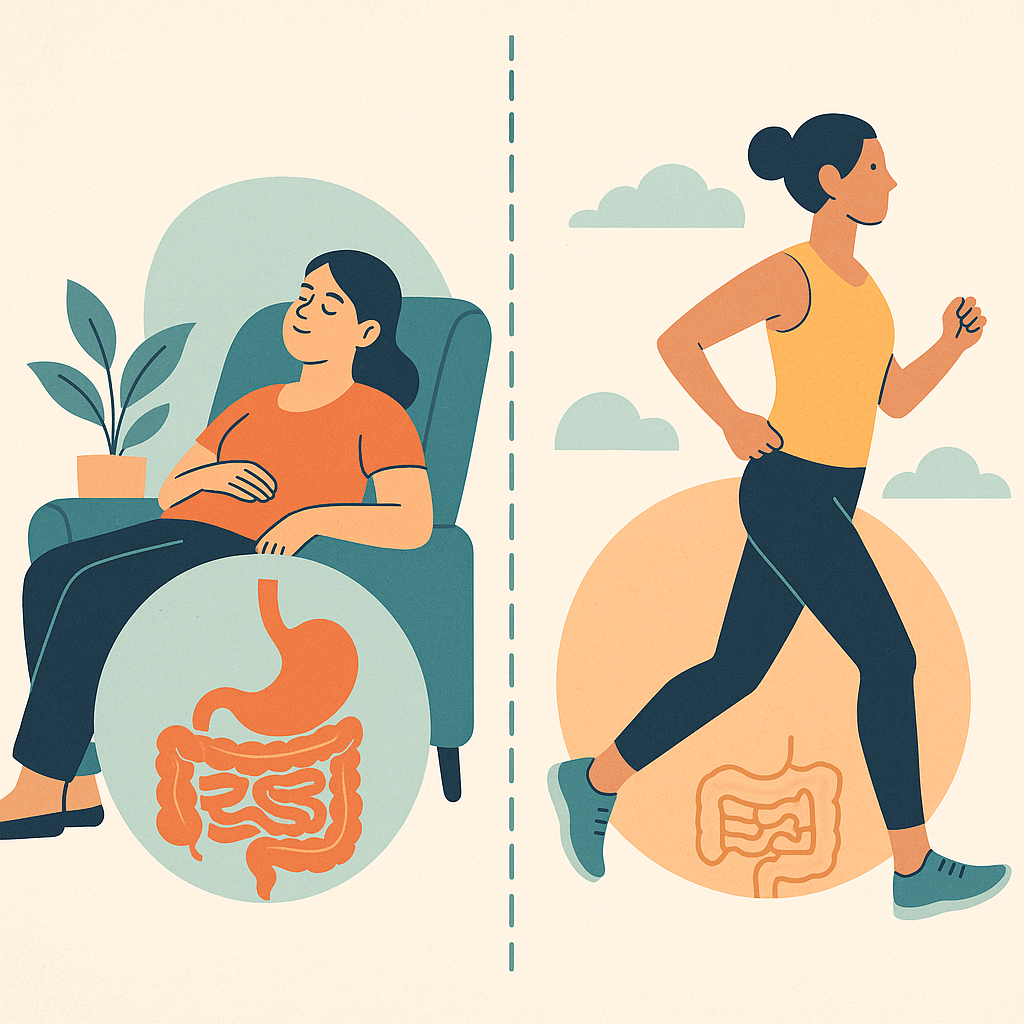
Physical Activity Speed Up Digestion?
Many people believe exercising right after a meal helps the body digest food faster. While light movement has benefits, the idea that physical activity increases the rate of digestion is not medically accurate.
Your body actually digests food most efficiently when you are resting, not when you are physically active.
How Digestion Really Works: The Role of the Parasympathetic Nervous System
Digestion is controlled primarily by the parasympathetic nervous system (PNS) — often called the “rest and digest” system.
When the PNS is active, it:
- Increases blood flow to the stomach and intestines
- Stimulates digestive secretions (enzymes, gastric acid, bile)
- Promotes intestinal motility (movement of food through the gut)
- Supports absorption of nutrients
These functions are supported by scientific understanding of the autonomic nervous system and gastrointestinal physiology taught in medical and health-science programs.
Therefore:
Your digestive system works best in a calm, relaxed state.
What Happens During Physical Activity?
Exercise activates the sympathetic nervous system (SNS) — the body’s “fight or flight” mode.
Numerous physiology studies show that during SNS activation:
- Blood flow to the GI tract is reduced as it is redirected to the muscles
- Gastric emptying may slow down
- Intestinal motility can decrease
- Digestive secretions are temporarily reduced
This shift helps your body supply your muscles with energy during activity, but it is not ideal for digestion.
So, Is Any Activity After Eating Good?
Yes — gentle activity can support digestive comfort, but not because it accelerates digestion at the biological level.
Light movement can help:
- Reduce bloating
- Improve gas movement
- Support blood sugar control (especially walking)
However, these benefits are different from speeding up the digestion process.
But avoid strenuous activity immediately after eating, because it may cause:
- Cramping
- Nausea
- Reflux
- Side stitches
- A feeling of sluggish digestion
Medical research consistently shows that vigorous exercise shortly after meals slows gastric emptying, not speeds it.
What’s the Best Approach?
To support healthy digestion:
- Allow 1–2 hours between eating and intense exercise (varies by meal size)
- Practice mindful, relaxed eating
- Use light walking after meals for comfort
- Stay hydrated
- Maintain regular physical activity overall
Summary
- Digestion is fastest and most efficient when the body is resting, with the parasympathetic nervous system active.
- Intense or moderate exercise does not speed digestion — it slows it, due to sympathetic activation and reduced GI blood flow.
- Gentle activity (like walking) can help comfort, but it doesn’t override normal physiological digestion speed.
Contact us today!
Working hours
Monday – Friday: 08:30 – 17:00
Saturday: 09:00 – 14:00
Sunday: Closed
